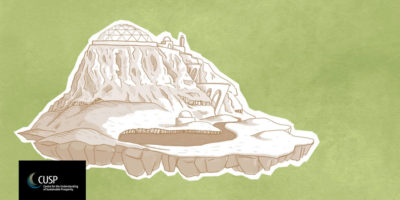Bread & Roses
It is a hard time to write about utopias. It feels frivolous in the face of war—indulgent, meaningless. There is also an echo of the possible totalitarian endings of utopian projects ringing through the Europe just now, which makes it seem even more frivolous. The failure of utopias is when we hold on too closely to perfection, and believe that there can only be one version of the world. Utopias turn totalitarian when we actually believe that utopia can be realised, rather than yearned for. This article is part of the Real Utopias blog series, and also appeared on the Arts Admin website.
BLOG by MALAIKA CUNNINGHAM
This blog series, and the work of sociologist Erik Olin Wright, is about finding waystations on the way to utopia, small real utopian projects which can help to point us towards something both better and tangible. There should always be the recognition that word itself, meaning ‘no-place’, drops a big hint that it is not a destination that can ever be reached. Real utopias are imperfect, yet model other ways the world can be. The best of them acknowledge their imperfection through adaptability, plurality, and reflecting on their purpose.
So why should we care about utopias today? When we are so weighed down by the present—when survival feels hard. Do I have the energy to find hope for myself, let alone try to convey it to a reader in a believable way? I think that essayist Rebecca Solnit does. And so, I will offer a lengthy and wonderful quote from Orwell’s Roses, her recent book about George Orwell’s love for gardening and how he balances bread and roses.
“Art that is not about the politics of this very moment may reinforce a sense of self and society, of values and commitments, or even a capacity to pay attention that equip a person to meet the crises of the day. …the least political art may give us something that lets us plunge into politics, that human beings need reinforcement and refuge, that pleasure does not necessarily seduce us from the tasks at hand but can fortify us. The pleasure that is beauty, the beauty that is meaning, order, calm.
…These artworks and the pleasure that arises from them are like the watershed lands on which nothing commodifiable grows, but from which waters gather to fill streams and rivers that feed the crops and people, or where wildlife lives that is part of the agrarian system—the insects that pollinate the crops, the coyotes who keep the gophers down. They are the wildlands of the psyche, the unexploited portion, preserving the diversity, the complexity, the systems of renewal, the larger whole as the worked land does not.”p. 95 – 96
I love this passage. When we feel meaningless in our art, in our gardens, amongst our roses—it is something to hold on to, this idea that the political role of our work is complex. I often want to point to clear causality, it has been ingrained in me from the countless funding applications and tour packs which have long asked me to justify the social impact of my work. And sometimes the causalities stated are overblown, and often they do not feel honest. But our work is not meaningless just because the meaning is not always clear. Embrace the wilderness of it. Its most precious gifts are not quantifiable—in fact, their preciousness is because of their immeasurability.
“Bread can be managed by authoritarian regimes, but roses are something individuals must be free to find for themselves, discovered and cultivated rather than prescribed.” p.100
The chapter I am quoting from is highly critical of utopias—specifically, it references Orwell’s suspicion of the totalitarian vein of utopianism running through the Socialist circles he sat within. But I want to argue that utopias as they are understood in this blog (i.e. riffing from Wright’s concept of real utopias, and Levitas’ utopia as method), may be more like Orwell’s roses. They are imperfect, they are imaginative, they are joyful and wild, they are shamelessly emotive, and they are growing up through the cracks in extractivist capitalism.
So, today—I don’t have a real utopia to offer—but I have an invitation to look for the roses around you. Those things which bring you pleasure, meaning and peace for no discernible reason other than they are beautiful and, for this, they make your world better.



